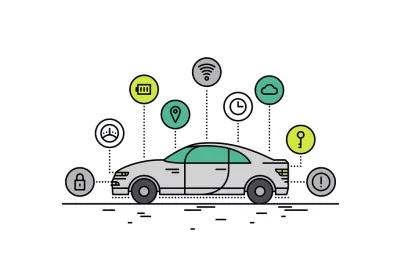Last week the National Highway Transportation Safety Administration (NHTSA) held the second of two meetings at Stanford University to solicit input from the public regarding the safety guidelines it is developing for the deployment of autonomous vehicles.
On the eve of last week’s meeting, Google, Ford, Volvo, Lyft, and Uber issued a press release announcing their formation of the Self-Driving Coalition for Safer Streets. David Strickland, the former Administrator of NHTSA, is the coalition’s counsel and spokesperson. Strickland delivered prepared remarks at the meeting explaining the purpose of the new coalition:
This coalition’s purpose is to create a means by which civic leaders, community organizers, businesses, lawmakers and regulators can work together to advance the deployment of fully autonomous, self-driving vehicles in a safe and timely manner. This coalition will be working with the broadest spectrum of stakeholders to make NHTSA Level 4 self-driving capabilities available to America’s drivers and passengers and pedestrians as soon as possible.
One reason why this coalition of innovators came together is that despite the abundant benefits to society from this technology, there are policy issues and inconsistencies in the regulatory environment today that could greatly delay deployment or possibly deny full self-driving from many that would benefit from its purpose. The coalition will engage with civic leaders so that any regulatory or legislative actions designed to improve safety do not foreclose Level 4 self-driving and to ensure that this is achieved in a timely manner.
Strickland’s remarks make it clear the coalition seeks to remove any legal or regulatory hurdles that would prevent fully autonomous, self-driving vehicles from becoming a practical reality for Americans as soon as possible. The coalition can be expected to use its best efforts to persuade NHTSA and other federal regulators to (i) establish guidelines that will facilitate the development and deployment of self-driving vehicles and (ii) thwart the development of one of its greatest fears—a patchwork of inconsistent state regulations.
The new coalition does not lack opponents. John Simpson, Privacy Project Director for Consumer Watchdog, strongly criticized the coalition at the NHTSA meeting last week, and he called on NHTSA to establish guidelines requiring autonomous vehicles to be equipped with a steering wheel, brake, and accelerator that would allow a human driver to intervene when necessary.
Based on previous guidance from NHTSA indicating that Google’s self-driving system may be deemed the driver of a fully autonomous vehicle for purposes of the Federal Motor Vehicle Safety Standards, NHTSA is unlikely to adopt rigid policy guidelines requiring that a human driver have the ability to intervene in the operation of all autonomous vehicles. Because NHTSA has consistently expressed its desire to incentivize the development and deployment of technologies that will save lives, NHTSA will likely adopt a flexible policy approach that is tempered by caution given the unknowns associated with automated vehicle technology.
According to a written policy statement from NHTSA and the Department of Transportation, “NHTSA will propose best-practice guidance to industry on establishing principles of safe operation for fully autonomous vehicles” within six months. In the meantime, we will keep you posted on any new developments.



 />i
/>i
